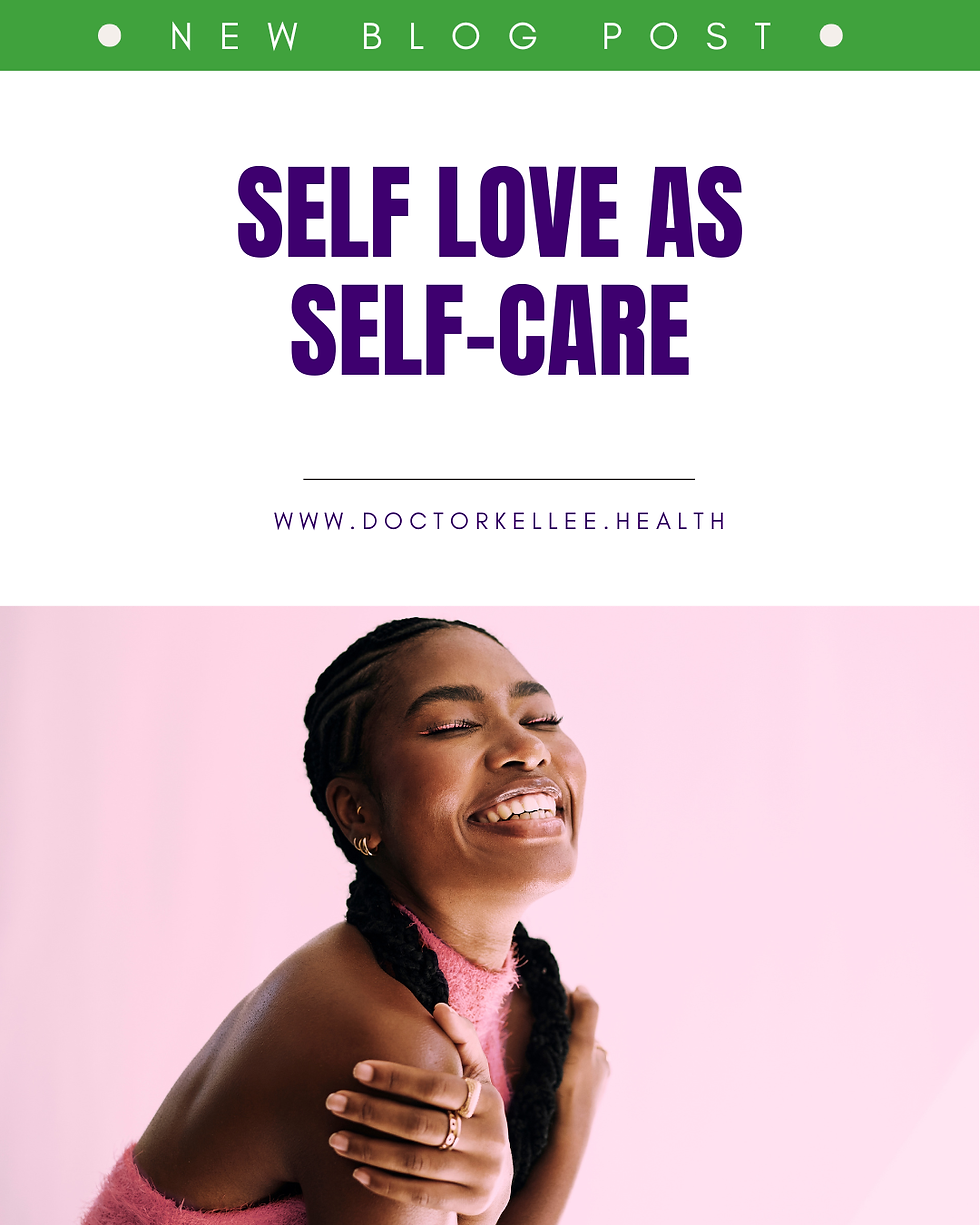Understanding High Blood Pressure
- Doctor Kellee
- May 17, 2025
- 2 min read

Understanding High Blood Pressure as Self-Care
High blood pressure, also known as hypertension, is often referred to as the "silent killer" because it typically has no symptoms but can lead to serious health problems. High blood pressure results when the force of the blood against the artery walls is too high, leading to damage over time. Understanding the dangers of high blood pressure is crucial for maintaining good health and preventing life-threatening conditions.
The Health Risks of High Blood Pressure
High blood pressure can cause the arteries to harden and thicken, a condition known as arteriosclerosis. This increases the risk of heart disease and stroke. When arteries harden, the heart has to work harder to pump blood, leading to heart failure, heart attacks, and other cardiovascular diseases.
High blood pressure can damage the blood vessels in the kidneys, reducing their ability to function properly. This can lead to kidney disease or even kidney failure, requiring dialysis or a kidney transplant.
High blood pressure can damage the blood vessels in the eyes, leading to vision problems or even blindness. This condition, known as hypertensive retinopathy, can cause bleeding in the eye, blurred vision, and complete loss of vision if left untreated.
An aneurysm is a bulge in the wall of an artery. High blood pressure can weaken the walls of the arteries, increasing the risk of an aneurysm. If an aneurysm bursts, it can cause life-threatening internal bleeding.
Hypertension can affect the blood flow to the brain, leading to cognitive decline and an increased risk of dementia. This can affect memory, thinking, and reasoning skills, impacting the quality of life.
Prevention and Management
High blood pressure can be managed and prevented with lifestyle changes and medication. Here are some tips to keep your blood pressure in check:
Maintain a Healthy Diet: Eat plenty of fruits, vegetables, whole grains, and lean proteins. Reduce your intake of salt, saturated fats, and cholesterol.
Exercise Regularly: Aim for at least 150 minutes of moderate-intensity exercise each week. Activities like walking, cycling, and swimming can help lower blood pressure.
Limit Alcohol and Avoid Tobacco: Excessive alcohol consumption and smoking can raise blood pressure. Limit alcohol intake and avoid tobacco products.
Manage Stress: Chronic stress can contribute to high blood pressure. Try practicing relaxation techniques such as meditation, deep breathing, and yoga.
Monitor Your Blood Pressure: Regularly check your blood pressure at home and visit your doctor for routine check-ups.
You can reduce the risk of serious complications by understanding the dangers of high blood pressure and taking proactive steps to manage it. Try implementing one or two healthy practices until they are habit. It’s never too late to make lifestyle changes.
Here’s to Your Health!



Comments